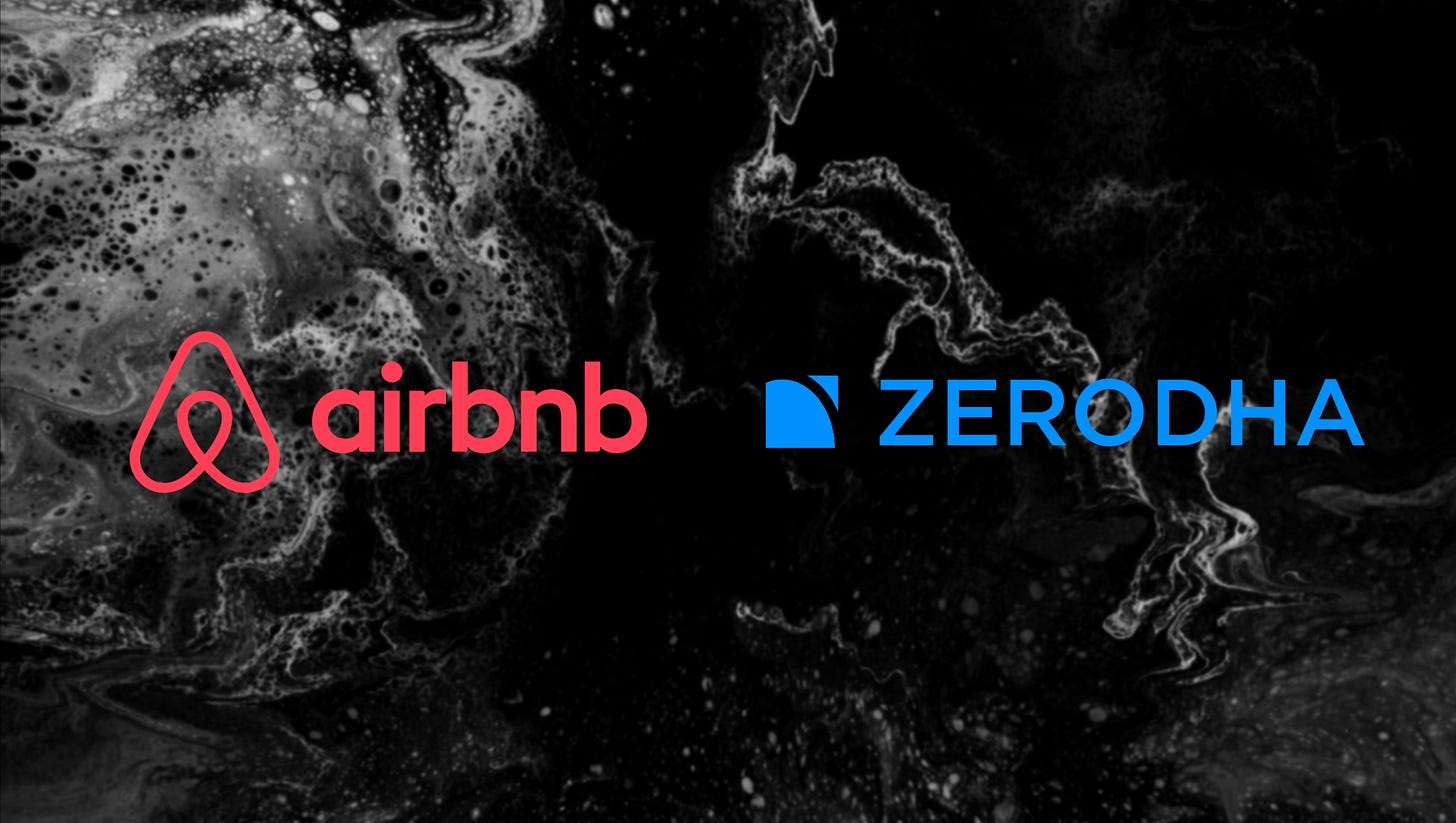How did Zerodha & AirBnB become so profitable?💰
Solving for business model across the user journey & more.
Welcome to the 115th edition of the GrowthX Newsletter. Every Tuesday & Thursday I write a piece on startups & business growth. Today’s piece is going to 94,400+ operators & leaders from startups like Google, Stripe, Swiggy, Razorpay, CRED & more
Zerodha recorded ₹2,094 Cr profit for FY 2022 🎯
Airbnb recorded ₹12,300 Cr profit for Q3 2022 🤯
The numbers are crazy good for the ecosystem 💙
Quick context 🗓
Zerodha made it's financial results public for FY 2022 & it's a huge profit machine now. Interestingly, Q3 results for Airbnb posted a crazy $1.5 billion net income.
These are mind-blowing numbers 🤞🏻
Airbnb's close competitors are in loss, the category has been a dead fish in the water. Take OYO's example for that matter. Even most online broking companies aren't profitable which compete with Zerodha.
Airbnb & Zerodha profits have hyper-grown. Zerodha 2X'ed it's annual profits & Airbnb's net income grew by 40%, that’s huge at their scale.
So, why are Airbnb & Zerodha winning? ⬇️
First/ Nailing distribution at a cost 💰
Airbnb solved for referral led growth to distribution (with it's world class referral design). Zerodha solved it with revenue share led affiliate model. Both nailed controlling customer acquisition cost & spending money only for converted customer.
Second/ Killer customer retention 🔁
Power Airbnb users do 3 bookings/ year. Average Airbnb bookings in US are 4.1 nights per stay. Average booking rate per night in US on airbnb was $110 in 2020. That's USD $1,300 customer lifetime value annually for power users.
Zerodha has one beast of retention. Out of it's ~6 million active customers, majority are traders. Average trades per user per year are in hundreds. Zerodha makes money on each trade. This cycle is so strong that Zerodha has natural customer resurrection (churned traders coming back), in turn never a need to spend random money to retain customers.
Third/ recurring revenue 🤑
Zerodha makes money on every demat account opening - and annual fees on each of them. This is unheard of in it's VC backed competitors. Strong moats of 1st mover advantage but what's commendable is founder conviction to charge from day 1 & not build funding led business models.
Fourth/ build for the user & repeat 💙
Both companies keep users at the center & build breadth of products & iterated like anything. Go complain about your Airbnb stay and see for ourself how they keep you at the very core. Similar for Zerodha - when every new startup in broking was getting funded - it kept building for the user - not launching random features for competition.
So what's next for Airbnb & Zerodha? 🎯
Short answer - category expansion. And that's what both are doing with Varsity -financial education from Zerodha & Summer releases from Airbnb. They will create new customers with education (Zerodha) and converting 'wants' into 'needs' (Airbnb).
Missed last few stories? Here’s the archive for last 30 days.
Jan 9th : Why does Domino's send extra "Oregano packets"? 🍕
Jan 5th : How did Marlboro & Redbull build habits?🚬
Jan 2nd : How can Air India beat Indigo in 2023? ✈️
Dec 26th : How did Tupperware get to $2 billion in annual revenue? 💸
Dec 21st : YouTube "Paid courses" aim for $1 billion revenue 🤯
Dec 19th : How did Grammarly reach $90 million ARR? ✍🏻
Dec 16th : The framework behind ChatGPT's distribution 💡
Dec 8th : How Swiggy / Zomato could be profitable?
Nov 30th : Truecaller's competitor is now Indian Government 🤯
Over 100+ stories here.



